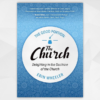Book Review: Oprah: The Gospel of An Icon
Kathryn Lofton. Oprah: The Gospel of an Icon. Berkeley: University of California Press, 2011. 288 pps. $27.95.
Faced with the topic of Oprah Winfrey, one is tempted to be dismissive. Surely she embodies much that is wrong with America: consumerism run amok, self-centered therapeutic excess, self-fashioned New Age religiosity, gauche emotional exhibitionism. Oprah is a day-time talk show host, after all, a pleasant enough presence to help the bored or unemployed whittle away the hours, but not a significant enough figure to be an object of sustained inquiry.
Rightly or wrongly, dozens of works on Oprah from journalists and more recently academics suggest otherwise. Over the past several decades Oprah has become a pop cultural phenomenon of massive proportions. Her product suggestions move markets, her advice guides millions of followers—especially women—as they seek more fulfilling lives, and her endorsement even helped elect a president, who in turn became Oprahfied. In all sorts of ways, whether we like it or not, Oprah provides a window into our public arena, the American consumer, and most important, the American soul.
THE INFLUENCE OF THE ICONIC OPRAH
Kathryn Lofton, who teaches religious studies at Yale, has written a sophisticated and challenging book about Oprah. Lofton analyzes Oprah through the lens of religion, arguing that Oprah’s products describe religion in modern America. She writes, “Within the religious pluralism of contemporary America, Oprah extols what she likes, what she needs, and what she believes. These decisions are not just product plugs but also proposals for a mass spiritual revolution, supplying forms of religious practice that fuse consumer behavior, celebrity ambition, and religious idiom” (2). Americans are drawn to Oprah because at the deepest levels she tells us who we are.
Oprah’s influence extends far beyond her talk show. Her outsized person has spawned a media conglomerate—Harpo, Inc., which is “Oprah” inverted—that brands its online presence, magazine, television network, charitable efforts, and much more with its ubiquitous symbol: O. At the center of this universe, Lofton posits Oprah as an icon, a symbolic figure who shapes and reflects our understanding of the world, our aspirations, and our need for divine presence. And she proffers a gospel: the good news that you can be freed from anxiety, frustration, and heartache by confessing your failings, recognizing the divine within yourself, committing to improving your life through Oprah’s prescriptions, and loving yourself through well-chosen purchases as suggested by Oprah.
A MAVEN, A PREACHER, AND A MISSIONARY
To help her followers achieve this salvation, Oprah is multivalent, like all enduring icons: she is the purveyor of a prosperity gospel; an omnipresent celebrity spirit guiding her flock to their best possible lives; a makeover maven who facilitates conversionary transformations; a black woman preacher who offers absolution to penitents; a book club impresario who promotes reading as reformation; and a missionary who spreads abroad the blessings of inspiration.
Lofton insightfully examines Oprah in each of these roles, uncovering the religious functions she performs for her spiritually parched followers. Occasionally, she reaches too far in connecting Oprah to historical precedents. It’s not clear, for instance, that her message and “the historical message of American Pentecostals” overlap in the ways she suggests (134), or that “Oprah’s Book Club shares aspects with the continuing dissemination of the Protestant Reformation” in its stress on the value of reading (154).
While Oprah denies that she plays a religious role—preferring instead inchoate categories of self-improvement and spirituality—Lofton demonstrates otherwise. Oprah offers sermonic teaching and regular rituals that organize reality and provide life direction, the hope of redemption, and a concerted program of outreach. Oprah herself is the vehicle for all this; it is her counsel, her choices, her biography of struggle and success, ultimately her “divine pervasion” that makes possible the lives her followers seek (117). Oprah knows that American women are tired and underappreciated—suffering from deep hurts and secret sources of shame; burdened by chunky thighs and large cabooses, neglectful husbands and callous bosses; frazzled by trying children and the ever-present demand to have it all and be just so. They simply need to bring these afflictions to Oprah, follow her commands, and find the deeper and richer life within that is waiting to blossom, well accessorized by sensible handbags and fashionable shoes.
EVALUATION
Lofton strives to maintain a measure of evaluative distance. She does not, for example, interrogate Oprah’s biographical claims, parts of which have elicited critical inquiry that render them dubious. Bue she does suggest that Oprah’s world may not be the best of all possible worlds. Lofton objects not to Oprah’s religion per se, but to its incessant commodification, its voracious corporatism, and its promotion of the ethics and lifestyle of consumerism. Like consumer culture generally, it promotes products—and foremost the product, Oprah herself—with promises of temporal salvation, but it fails to deliver enduring value. Your life will be transformed if you just do this or that, but do be sure to come back tomorrow and the next day, when new instructions will keep you grasping for the elusive brass ring. The life you want and know you deserve—well, it may feel at times that it’s always just beyond the horizon, but look at Oprah and know that it is yours for the taking.
Despite the middlebrow approach of the woman herself, Oprah is a dense tome suffused with theoretical sidelines and ponderous prose. In recent decades, many academics have taken to dissecting the deeper meanings of popular culture, not without some enlightening results. But perhaps as a bulwark against snobby academic dismissals—you’re writing about … Oprah?!?—many of these pop-cultural-academic authors seem unduly inclined to couch their analysis in labyrinthine prose and speculative abstractions. Apparently, it is unreadability that assures fellow academics that it is a serious treatment of the pop culture issue at hand. Regrettably, Oprah fits this pattern. Thus a book that might have received a broader audience will be read by relatively few.
Finally, how can we as Christians combat the quintessentially American religiosity Oprah embodies and promotes? Like the Apostle Paul amid the pluralistic religious environment of the Mediterranean world, in the face of false gospels we must preach Christ crucified, the living Word of God who brings true fulfillment. Like Paul amongst the Athenians, we must know and understand our culture so we can speak to its deepest yearnings and heartfelt desires, translating into its context the true good news that brings life abundant, something far greater than anything Oprah could promise.







